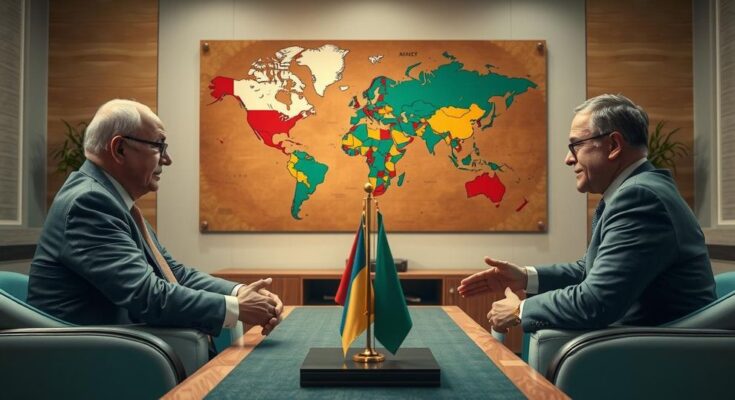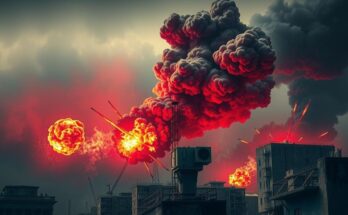On March 18, 2024, DRC President Félix Tshisekedi and Rwandan President Paul Kagame met in Qatar to discuss the eastern Congolese conflict involving the M23 rebel group. A ceasefire was reaffirmed during this dialogue, although it coincided with the cancellation of peace talks in Angola. The M23’s withdrawal, due to EU sanctions, and rising conflict casualties emphasize the urgent need for continued negotiations for peace.
On March 18, 2024, the presidents of the Democratic Republic of Congo (DRC), Félix Tshisekedi, and Rwanda, Paul Kagame, convened in Qatar to discuss the ongoing conflict in eastern Congo, particularly involving the Rwandan-backed March 23 Movement (M23) rebel group. Notably, the M23 was not present during these discussions. A joint statement from both governments emphasized their commitment to an immediate and unconditional ceasefire, mediated by Qatari Emir Tamim bin Hamad Al Thani.
This meeting coincided with planned peace dialogues in Angola; however, those discussions were canceled after the M23 withdrew due to European Union sanctions imposed on its leaders. The statement included a mutual agreement to continue the Doha talks, aiming to establish a foundation for lasting peace. Kagame and Tshisekedi are expected to meet again at a summit scheduled for December 15, 2024, following a ceasefire agreement signed in Luanda that had been disrupted by ongoing hostilities.
Historical attempts to address the conflict have been made, including João Lourenço’s mediation on March 18. This occasion marked the first agreement from the Congolese government to meet directly with the M23. Unfortunately, the Angolan Foreign Affairs Ministry later announced that the peace dialogue could not proceed due to unforeseen circumstances after the M23 canceled its participation.
The Congo River Alliance (AFC), which includes the M23, expressed discontent over what they see as sabotage of peace efforts by international entities. The M23, accused of being supported by Rwanda by various international bodies, currently controls key regions in North and South Kivu, areas rich in vital minerals such as gold and coltan.
As the conflict has intensified since January, over 850,000 individuals have been displaced in South Kivu, according to UNICEF, while combat in and around Goma, North Kivu’s capital, has resulted in more than 8,500 deaths, reported by the Congolese Minister of Public Health. The M23 has been active since November 2021, reigniting fears of a broader regional conflict that dates back to ongoing violence in eastern DRC since 1998, despite the presence of the UN peacekeeping mission.
The discussions between presidents Tshisekedi and Kagame highlight the complexities surrounding the eastern Congolese conflict, particularly the roles played by international forces and the M23. The commitment to a ceasefire underscores the urgency of peace talks amidst a backdrop of significant humanitarian impacts and geopolitical tensions in the region. Continued collaboration and dialogue among involved parties remain crucial for establishing lasting peace in eastern DRC.
Original Source: efe.com




